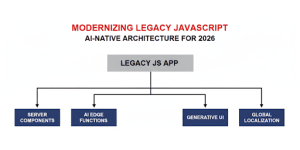Integrating Artificial Intelligence into Web Browsers
When we talk about AI, smart browsing is about giving browsers the ability to offer users features and tools that make the online experience more intuitive. Some of these have been around for a bit, but we’re about to make narrow-AI hypertext dial-experiment rating engines available to everyone.
That means turning passive web gateways into active helpers that can fetch and share information, manage tasks, protect against threats and enhance accessibility in real-time with AI powered browsers.
These browsers are opening up a new chapter in the fast moving tech landscape. Enter the AI Browser which will change smart browsing forever, so you can browse the web more intelligently, privately and personally than ever before.

Cool Stuff Web Ai Browsers Can Do
1. Personalized Content Recommendations
It is these suggested sites that AI algorithms study user browsing behaviour, searches and preferences to provide the most relevant suggestions. Smart browsers help find relevant articles, videos, or shopping items that matter by the day or hour they are browsing.
2. Voice and Chat-Based Navigation
By enabling voice assistants and AI chatbots, users can search for information on the site or execute all query tasks in a more conversational way simply by typing how we talk.
3. Real-Time Translation and Summarization
Now users can view the contents of foreign web pages using AI-driven browsers such as Microsoft Edge and Google Chrome, and even read a summary of long pieces of content which makes global content consumption faster and more efficient.
4. Smart Autofill and Password Management
It uses AI to predict active and passive inputs for form autofill, stores passwords securely (with behavior based authentication and anomaly detection), making it much more convenient as well as safer.
5. Ad and Tracker Blockers
Any decent transcription service will vanish all these annoying pop-ups and employ some machine learning to take care of the invasive trackers as well, which helps in the speediness of it all.
6. Threat Detection and Security
In addition to these mechanisms, the presence of AI makes it possible to analyze patterns and anomalies in real-time, thus adding a layer of proactive protection against cyber threats, such as phishing sites or malware.
Alright, let’s get real for a sec, AI baked right into your browser? Total game-changer.
1. First off, the productivity boost is wild. Who wants to waste their life typing the same info into forms, hunting down old downloads, or sorting through a graveyard of bookmarks? Not me. Let the robots sweat the small stuff while you tackle the big-picture stuff (or, you know, finally watch that YouTube video you’ve had open for days).
2. Accessibility? Massive win. I mean, why should the web be a pain for anyone? AI tools like voice commands and text-to-speech are a lifeline for folks with visual or motor issues. Seriously, it’s about time the internet rolled out the welcome mat for everyone.
3. Then there’s decision-making. AI can chew through a mountain of data and spit out the good bits no more drowning in info overload. Whether you’re a student, a researcher, or someone who just wants the TL;DR, it’s a total lifesaver.
4. And don’t even get me started on security. AI anti-phishing? Bring it on. Stronger privacy? Yes, please. The internet is basically a jungle, and I’d rather have a smart browser watching my back than go it alone.
Alright, let’s dive into the real world for a second.
5. So, Microsoft Edge? Yeah, they’ve got this thing called Copilot AI now. It’s basically your nerdy sidekick spits out content, chews through web pages, and generally tries to make you look smarter (or at least, less like you’re drowning in tabs).
6. Then there’s Opera. They slapped a name on their AI Aria. Feels kinda fancy. It’ll spit out code, crank out text, help you juggle random online nonsense. Not bad for a browser that most people forgot about after, like, 2012.
7. And Chrome of course, Chrome’s gotta flex on everyone. They’ve loaded it up with stuff like Smart Live Tabs, automatic captions, and those spooky search suggestions that know what you want before you’ve even finished typing. Seriously, Google, chill.
But hey, it’s not all rainbows and unicorns. Let’s talk headaches:
First up, privacy. You ever wonder what they’re doing with all that data? Yeah, me too. Training these AIs means scooping up a ton of personal info. If they mess up, your weird search history is suddenly everyone’s business.
And don’t get me started on becoming an AI zombie. If you lean on these tools too hard, you might forget how to actually think for yourself. Next thing you know, you’re asking your browser whether you should eat lunch.
Last bit and this one’s spicy bias and accuracy. Machines learn from us, which means they pick up all our bad habits and prejudices. So if you think an AI is always fair, uh, sorry to burst your bubble.
Anyway, that’s the state of play. Cool tech, but keep your eyes open.
Smarter Search and Predictive Typing
AI’s gotten pretty wild with search lately. It doesn’t just spit out suggestions based on what you’re typing nah, it’s snooping on your past searches, what time it is, maybe even where you’re chilling right now. Creepy? Maybe. Useful? Oh, absolutely. Suddenly, you’re finding what you want way faster. Less time lost in the search void, more time doing, well, literally anything else.
AI Chat Assistants Within the Browser
Honestly, who even opens new tabs anymore? Browsers these days have little robot buddies baked right in. Need an email drafted? Check. Summarize a 20-page article you’ll never read? Yup. Generate some code because you totally forgot how? They’re on it. All right there, no tab juggling, no fuss. It’s like Clippy got jacked up on steroids and actually started being helpful.
Cross-Language Understanding and Translation
Language barrier? What’s that? AI’s translating whole web pages on the fly now none of that awkward word-for-word stuff either. These things know their idioms, they get when you’re being sarcastic, and they can even handle jargon that would make your high school French teacher sweat. Global internet, here we come.
Cybersecurity & Threat Intelligence
Honestly, AI is like having a hyper-vigilant bouncer for your browser. It’s always poking around for sketchy links, phishing scams, and weird behavior. The best part? It learns from shady stuff happening everywhere, not just what’s on your computer. So yeah, it gets smarter by the day no rest for the wicked.
Enhanced User Experience & Personalization
Ever feel like your browser just “gets” you? That’s AI, quietly stalking (in a friendly way, promise) your clicks, scrolls, and preferences. It tweaks everything suggestions, themes, where your tabs go, even how fast stuff loads all to fit your weird little habits. It’s like having a personal assistant, minus the awkward small talk.
Accessibility and Inclusion
This is where AI actually does something genuinely good. It opens up the web for everyone, not just tech bros. Stuff like live speech-to-text, screen readers that don’t sound like robots from the ‘90s, and gesture controls, these features are game-changers for folks with disabilities. Makes you wonder why this wasn’t standard ages ago.
What This Means for Web Folks and Marketers
Man, AI isn’t just some background buzzword anymore it’s totally flipping the script for both web devs and digital marketers. The way people interact with sites? Whole new ballgame.
- SEO’s Not What It Used to Be: These new, AI-powered browsers? They’re all about giving users dead-on answers instead of just spitting out a list of links. If you’re still keyword-stuffing your pages like it’s 2012, you’re gonna get left behind. You gotta speak human thoughts, not codewords.
- Building For Bots (and Actual People): Here’s the kicker: devs now have to deal with AI bots that aren’t your typical Google crawlers. Some of them skim, some summarize, some even interact like semi-intelligent toddlers. Sites need to play nice with this new crowd, or risk getting skipped.
- AI’s On Your Team (Sort of): Content tools powered by AI can bang out website copy, run A/B tests while you sleep, and even spit out little code fixes on the fly. It’s wild. But hey, use it smart, or you might end up with a generic site that feels like it was written by, well, a bot.
Difficulties and Ethical Dilemmas
Even with the possible benefits, there are hordes of concerns associated with browsers using AI:
- Data Privacy: AI models rely on user data to operate effectively, which raises questions around user consent, clarity of data use, and data security.
- Sector Bias: Algorithms may unintentionally seem to favor biased or more-likely content based on training data.
- De-skilling: Users may be over-reliant on AI, putting their critical decision making and independent exploratory research skills, in jeopardy.
Confronting these Challenges:
- Transparent AI feature settings built into browsers with a clear option to opt out.
- Improve encryption, allow on-device AI processing.
- Regular audits of AI behaviour (including not only fairness but performance measurement, and accuracy).
Conclusion
Alright, let’s get real AI in web browsers? That’s not just some nerdy upgrade you can ignore. We’re talking about a whole new game here. Now your browser isn’t just some window to the internet it’s like your digital sidekick. It gets you, remembers your quirks, maybe even judges your late-night shopping sprees (hey, no shame).
Honestly, this is just the kickoff. With all this AI jazz running in the background, surfing the web is morphing into something way smarter and way more personal than those clunky search bars from the past. I mean, future browsers won’t just spit out links. They’re gonna know what you want before you finish typing, maybe even before you realize you want it (which is both amazing and slightly creepy, let’s be real).
But hey, with great power comes great responsibility, right? So, fingers crossed that the folks making this stuff don’t just focus on making things shiny and fast, they better keep things safe, ethical, and user-friendly. In the end, it’s all about putting you in the driver’s seat, not turning you into just another data point.


